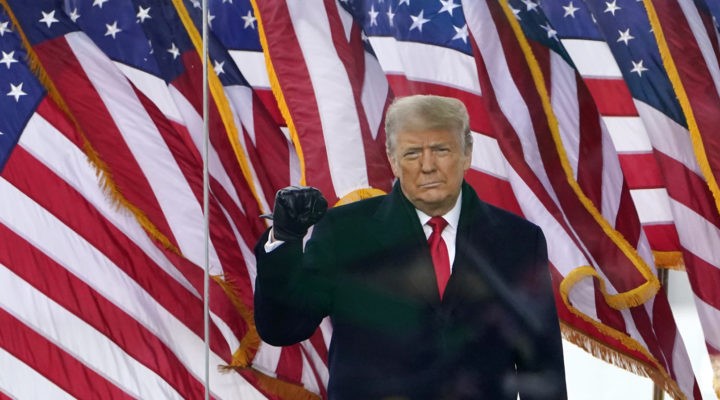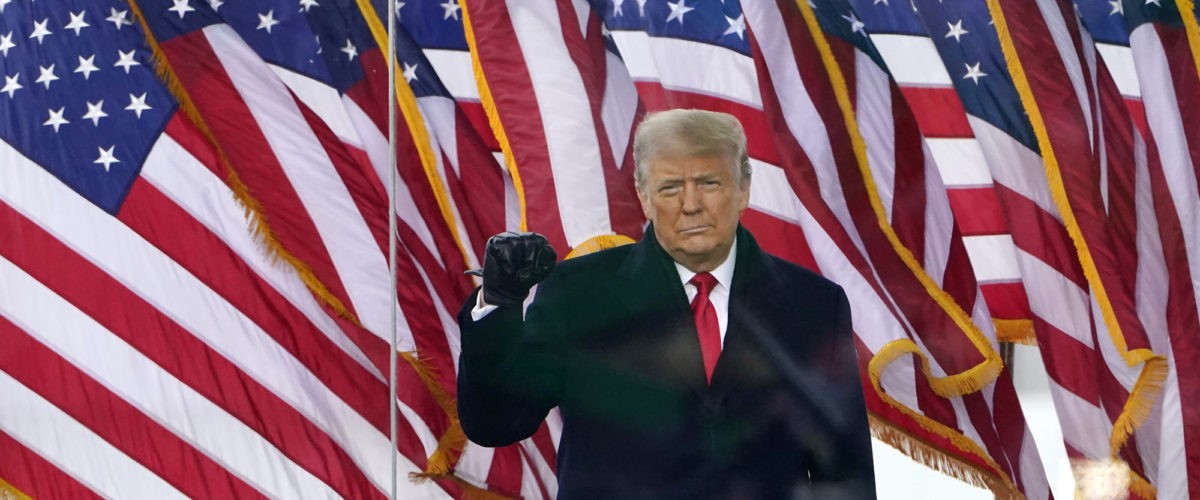The day after riotous supporters of President Donald Trump overtook the United States Capitol, religious leaders across the nation spoke out decisively against the Jan. 6 anarchy. The chorus of condemnation included religious leaders who have been sharp critics of the Trump administration all along and some who have been his advocates.
Here is a summary of what some of the religious leaders had to say, with links to their more detailed statements.
Cooperative Baptist Fellowship
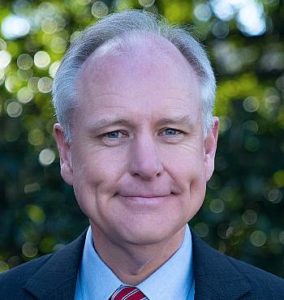
Paul Baxley
Paul Baxley, executive coordinator of the Cooperative Baptist Fellowship, issued a lengthy statement Jan. 7 calling on CBF pastors and congregants to be truth tellers about what happened and why it happened. He noted the irony of such a violent act being sparked by at national leader on the day of Epiphany on the Christian calendar.
“Yesterday was not the first Epiphany marked by such hatred and darkness,” he wrote. “The biblical story of the Epiphany takes place in the context of horrific violence caused by the insecurities, words and deeds of a ruler and those close to him.”
He called on Christians to behave like the magi who came to visit Jesus yet refused to participate in Herod’s evil plot: “Today we face a choice, just like the magi. Will we be overcome by the violence around us? Will we participate in it or enable it? Will we avoid it? Or will we find a different and faithful way?”
Southern Baptist Convention
Southern Baptist leaders, who largely have supported Trump and his actions for the past four years offered cautious statements denouncing the riots but not the president.
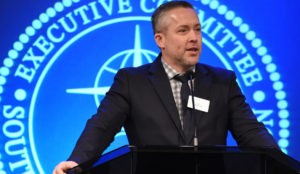
J.D. Greear (Photo: Baptist Press)
“Peaceable transitions of power have marked our Republic since the beginning,” SBC President J.D. Greear posted on Twitter. “It is part of honoring and submitting to God’s ordained leaders whether they were our choice or not. We need you, @POTUS to condemn this mob. Let’s move forward together. Praying for safety.”
Ronnie Floyd, president of the SBC Executive Committee, said he was “deeply grieved over the destruction and violence at the U.S. Capitol. The peaceful transfer of power is a hallmark of American democracy, and today we saw the opposite of peace. This is not what we are called to be as Americans, and this is surely not what we are called to be as Christians.”
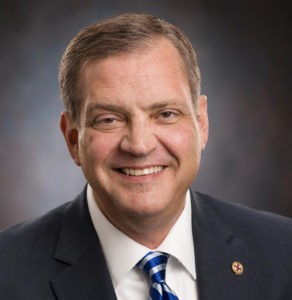
Albert Mohler
The harshest criticism of Trump as enabler came from a Southern Baptist leader who made headlines last fall by publicly endorsing Trump for re-election: Al Mohler, president of Southern Baptist Theological Seminary.
“What we are seeing in Washington now is the refutation of our American commitment, a form of unleashed anarchy which is the enemy of ordered liberty, and President Trump is responsible now for unleashing mayhem,” Mohler said. “Pray that God will rescue us from this.”
Read the full report by Baptist Press here.
United Methodist Church
United Methodist clergy and denominational leaders roundly denounced the assault on the Capitol and the falsehoods driving it. The nation’s most well-known United Methodist layperson, former President George W. Bush, was among them.
“I am appalled by the reckless behavior of some political leaders since the election and by the lack of respect shown today for our institutions, our traditions and our law enforcement,” Bush said in a statement. “The violent assault on the Capitol — and disruption of a Constitutionally mandated meeting of Congress — was undertaken by people whose passions have been inflamed by falsehoods and false hopes.”
Bush and his wife, Laura, attend Highland Park United Methodist Church in Dallas.
Read a comprehensive story from UMC News here.
Presbyterian Church USA
The PCUSA Office for Public Witness has offices directly across the street from the U.S. Capitol.
“This was an alarming and sobering reality of the divisions within our country and the danger posed by those who are guided by extremist ideology,” Jimmie Hawkins, leaders of that Presbyterian office, said in a statement.
“The Office of Public Witness strongly condemns the actions of President Donald J. Trump and his followers. These actions were not just an attack on the Capitol Building, but an attack on American democracy. There must be a demand for accountability on the part of the president, or else the rule of law means nothing. It cannot be applied to some, but not to all.”
Catholic Church
Like the Baptist world, U.S. Catholics have been deeply divided in their administration or disdain for Trump, a division that has spilled over into the ranks of clergy as well as laity.
“We Americans should honor the place where our nation’s laws and policies are debated and decided,” said Cardinal Wilton Gregory, archbishop of Washington. “We should feel violated when the legacy of freedom enshrined in that building is disrespected and desecrated.”
Gregory urged the nation to overcome the “divisive tone” that has dominated the political discourse in the United States and said, “Those who resort to inflammatory rhetoric must accept some responsibility for inciting the increasing violence in our nation.”
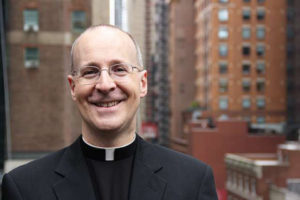 A more direct statement from a Catholic official came from James Martin, editor of America magazine and a frequent apologist for the more socially progressive side of Catholicism in America. “This is the time for Christian leaders to admit their part in the violence at the Capitol. When you cast elections as ‘good versus evil,’ vilify candidates and say that voting for one candidate is a ‘mortal sin,’ you encourage people to think that today’s actions are moral,” he said on Twitter.
A more direct statement from a Catholic official came from James Martin, editor of America magazine and a frequent apologist for the more socially progressive side of Catholicism in America. “This is the time for Christian leaders to admit their part in the violence at the Capitol. When you cast elections as ‘good versus evil,’ vilify candidates and say that voting for one candidate is a ‘mortal sin,’ you encourage people to think that today’s actions are moral,” he said on Twitter.
Read the Religion News Service story on Catholic response here.
Evangelical Lutheran Church in America
ELCA Presiding Bishop Elizabeth Eaton posted a video to Facebook in response to the violent events. “This is not a protest. This is not only breaking the law, but it is a threat to our democracy,” she said.
Bishop Leila Ortiz of the ELCA’s Metro D.C. Synod also posted a video message on Facebook: “Prayer was interrupted yesterday by action described as desecration of holy ground. What began as a solemn, peaceful witness was interrupted by self-identified Trump supporters who barged into the encircled sacred space held by those present. These individuals proceeded to reenact the murder of George Floyd in our midst and took pictures in front of the Black Lives Matter sign and Martin Luther statue.”
Ortiz called on Lutherans to “put on the whole armor of God,” a reference to Ephesians 6, and pointed to a previously published social policy resolution titled “Condemnation of White Supremacy and Racist Rhetoric.”
View the ELCA statements on Facebook here.
Episcopal Church
Michael Curry, presiding bishop of the Episcopal Church, issued a video statement the day of the riot.
“The events at our Capitol today are deeply disturbing,” he said. “We believe the actions of armed protesters represent a coup attempt. … This threatens the integrity of our democracy, the national security of our nation, the continuity of government, and the lives and safety of our legislators, their staffs, law enforcement and all who work in the Capitol.”
The Episcopal Church’s Office of Government Relations is housed in the United Methodist Building directly across the street from the Capitol. Its director, Rebecca Linder Blachly, issued her own statement: “We condemn violence in all its forms and the effort to overturn the will of the people and the peaceful transition of power. We must all commit to engaging our government in the ways our constitution allows us to — through petitioning the government, through advocacy and through our public witness that emerges from our faith in Christ Jesus and that demands we push for policies that help the least of these.”
Read the Episcopal News Service story here.
National Association of Evangelicals
The NAE posted a statement on its website without attribution to any author. It said the “insurrection” at the Capitol “epitomizes the rancor and polarization present in our country” and declared that the NAE “denounces the violence … as well as the nation’s longstanding vices that led to this chaos.”
It added: “Followers of Jesus are peacemakers. Some images from the protests demonstrate a disturbing conflation of Christianity and a nationalist ideology that is far from the way of Jesus. Christians are commanded to seek the peace of the cities where they live, to love their enemies, to seek unity and to proclaim a message of peace.
“Yesterday’s events, which included the erection of a noose, are another painful reminder of racism that plagues our country. We mourn the loss of lives, and we also mourn that the loss of lives may have been much greater if the protesters were a different race. We again lament the recurring trauma experienced by people of color in this country. God has endowed every individual with equal value and dignity.”
Then the NAE, which includes many of the conservative evangelical congregations and pastors who have been the most ardent supporters of Trump and Trumpism, called out the president specifically: “The mob at the Capitol was provoked by leaders, including President Trump, who have employed lies and conspiracy theories for political gain. Evangelicals are people who are committed to truth and should reject untruths.”
The NAE called for a “Weekend of Prayer and Fasting for the Healing of the Nation” beginning Jan. 8.
“We encourage our communities to pray for a peaceful transfer of power and for healing and peace in our country and world,” the statement continued. “Pastors and church leaders must also consider how to help their communities embody a Christ-like approach to politics and public life. “
Read the full NAE statement here.
Other prominent evangelical figures
Despite the NAE statement, comments from individual evangelical leaders were often tepid, with a few notable exceptions.
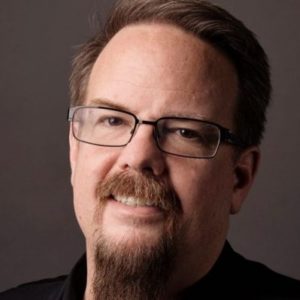
Ed Stetzer
Ed Stetzer, director of the Billy Graham Center for Evangelism at Wheaton College, posted about the day’s events on his blog though Christianity Today. He began by quoting Galatians 6:7 — “Do not be deceived: God is not mocked, for whatever one sows, that will he also reap.”
He wrote: “This season of political sowing has brought the harvest we see at the Capitol today. Parents teach their children that actions have consequences. Unfortunately, we have plenty of examples these days of people who never seemed to learn this lesson. And, most disturbingly, when these examples are those entrusted with power, the consequences are far reaching. When a person has the most powerful job in the world, the consequences can last for generations.
“This day will be remembered for years to come,” he continued. “President Trump’s ongoing claims of massive fraud and his unwillingness to concede the 2020 election have had consequences.”
Russell Moore, executive director of the SBC Ethics and Religious Liberty Commission, tweeted to Trump as the events were unfolding Jan. 6: “@realDonaldTrump, you have a moral responsibility to call on these mobs to stop this dangerous and anti-constitutional anarchy. Please do so.”
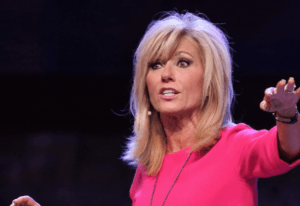
Beth Moore. Photo/Relevant Magazine
Beth Moore, popular evangelical author and Bible teacher, tweeted: “I don’t know the Jesus some have paraded and waved around in the middle of this treachery today. They may be acting in the name of some other Jesus but that’s not Jesus of the Gospels.”
Jack Graham, pastor of Prestonwood Baptist Church in suburban Dallas and a former president of the SBC, has been one of Trump’s loudest cheerleaders. He has used Twitter previously as a platform to endorse Trump and his actions.
On Jan. 6, Graham offered only three brief sentences about the events in Washington: “Violence at our nation’s capital is to be condemned and law and order must prevail. Pray for our country. This is heartbreaking.”
The next day, Graham tweeted a link to a post by media consultant Phil Cooke that acknowledged those who stormed the Capitol were “morons” but downplayed the seriousness of the event as mainly media hype: “The bottom line is that we often forget we live in a media driven culture with hyper-partisan news, and a social media echo chamber. And in the media world, the loudest voices find the biggest audiences.”
Graham called Cooke’s comments “a wise perspective.”
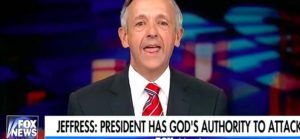
Robert Jeffress, pastor of First Baptist Church of Dallas, is a regular contributor to Fox News.
Robert Jeffress, pastor of First Baptist Church of Dallas, and another high-profile Trump supporter, tweeted only one sentence: “Disobeying and assaulting police is a sin whether it’s done by Antifa or angry Republicans.”
Evangelist Franklin Graham, perhaps the greatest of Trump’s evangelical supporters, used Twitter to suggest the events in Washington were a “both sides” problem: “Pray that everyone will stop the finger-pointing and realize that both parties bear responsibility for the problems we face today. Pray that they will come together and work together for the good of all of the American people.”
Related articles:
Pastors respond to unbelievable events at Capitol on Epiphany 2021

